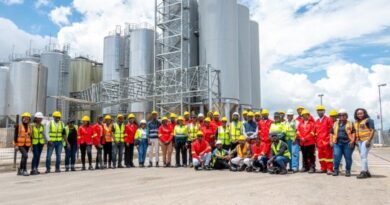Namibia’s Ministry of Environment, Forestry, and Tourism Approves ReconAfrica’s Exploration Wells in Kavango Basin
The Ministry of Environment, Forestry, and Tourism in Namibia, through the Office of the Environmental Commissioner, has granted ReconAfrica the Environmental Clearance Certificate (ECC) to proceed with the next phase of their oil and gas exploration work program. The ECC allows ReconAfrica to drill Exploration and Appraisal wells in the Kavango Basin. The issuance of the ECC adheres to the provisions of the Environmental Management Act, 2007, (Act No. 7 of 2007), and the EIA Regulations, 2012.
The Kavango Sedimentary Basin (KSB) de-risking process is ongoing, and ReconAfrica’s proposal involves drilling prioritized exploration and appraisal wells to verify the presence of economic oil and gas resources within the delineated targets and prospects. This will be based on additional 2D seismic survey data acquisition and interpretation, airborne geophysical surveys, and stratigraphic well data sets. The primary objectives of the proposed drilling program are to continue the search for oil and gas in the Kavango Sub Basin and identify potentially commercial petroleum systems.
Namibia’s economy heavily relies on natural resources, and the Ministry of Environment, Forestry, and Tourism must ensure that economic activities are carefully evaluated for their potential environmental impacts. The ECC approval follows thorough screening and consultation with interested and affected parties, local communities, landowners, and traditional authorities.
The Ministry, through systematic assessment, has determined that the potential negative impacts of drilling at individual sites and regions, including the Kavango East and West Regions, Namibia as a whole, the KAZA TFCA transboundary region, and global interconnected ecosystems, will be low, manageable, and mitigatable.
The ECC approval aligns with Namibia’s laws, regulations, and structures governing the management of petroleum exploration and production, environmental preservation, water and atmospheric pollution prevention, health, labor, and related services and engineering works.
The government acknowledges the strategic importance of the energy sector and energy security in achieving sustainable development goals. Namibia’s energy mix policy strategy aims to strike a balance among various energy sources, including the utilization of available energy resources to meet the country’s current and future national development goals.
While there is growing global pressure for countries to transition away from fossil fuels and adopt low-carbon energy sources, Namibia emphasizes that the energy transition must be fair and affordable for developing countries. The country believes that the development of the oil and gas industry can coexist and complement efforts to reduce greenhouse gas emissions and combat climate change. Namibia is committed to implementing short and long-term resilience and adaptation strategies to combat global warming’s effects on communities and sectors.
The commercialization of oil and gas resources is seen as an opportunity to obtain much-needed resources to tackle climate change alongside the international community.



